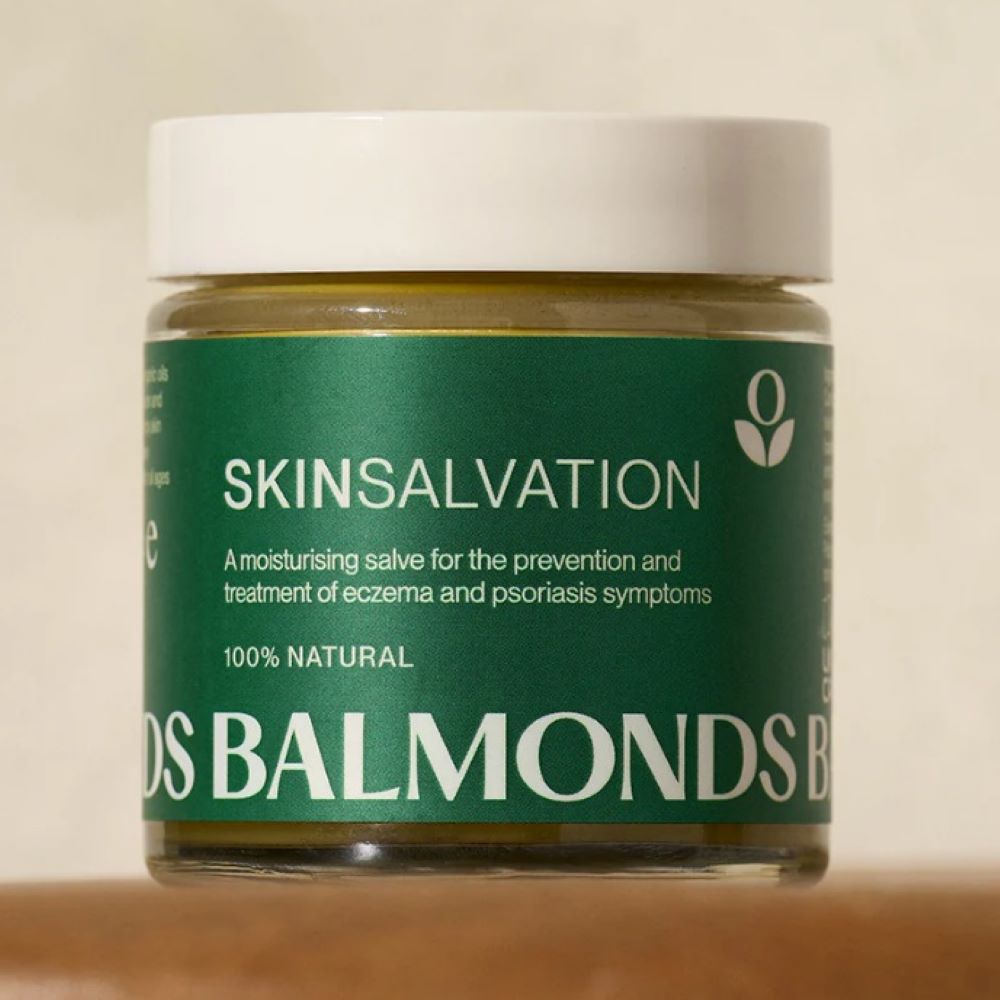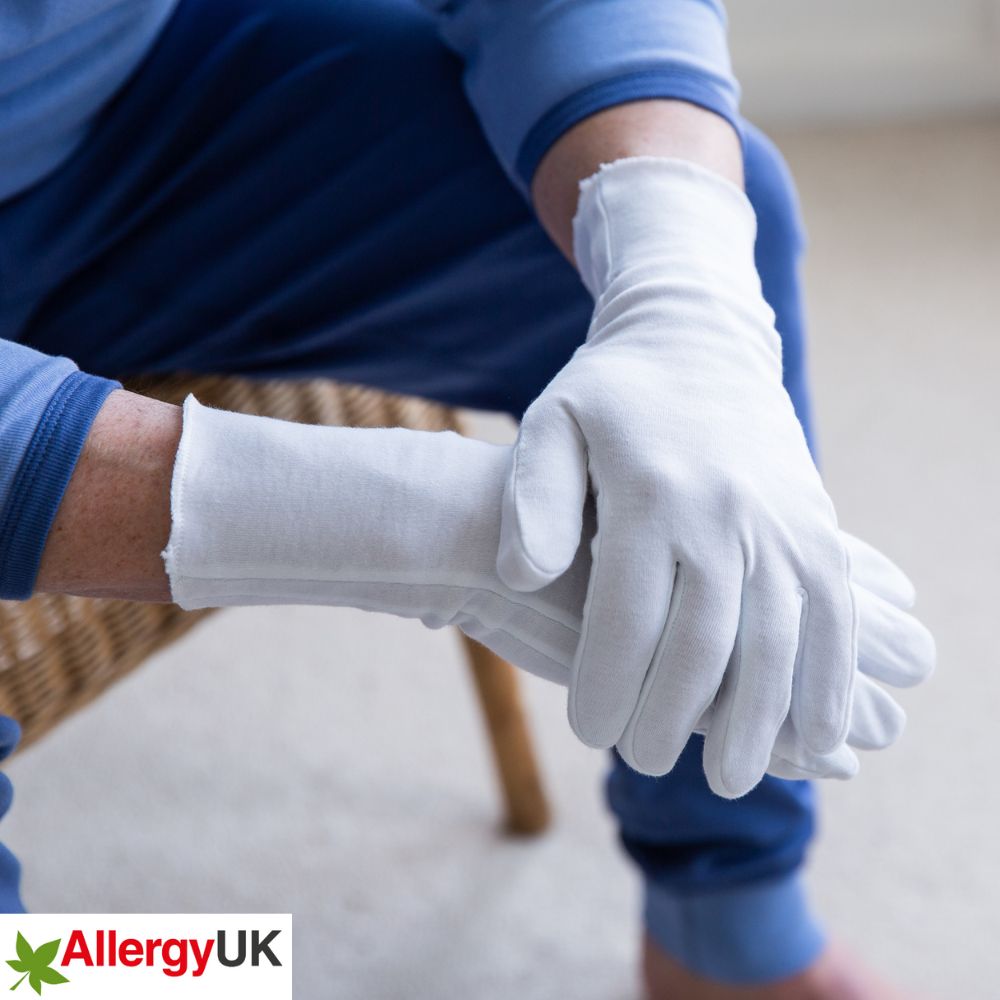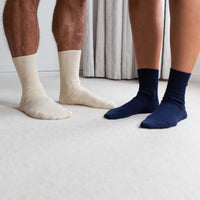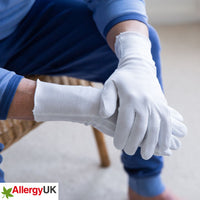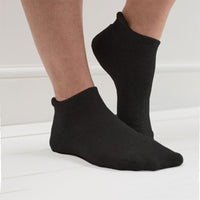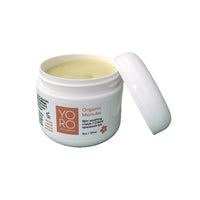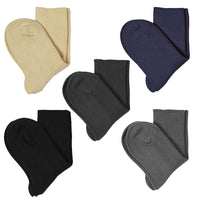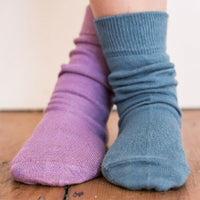
Hot tips for a cool restful night
Hot tips for a cool restful night
When I was little I was constantly itchy and I struggled to sleep as a result. This had a huge impact on me and my whole family. Over the years I have learnt a lot about what can help to alleviate the itching and improve the likelihood of a good night’s sleep. My Mum Dorothy created the first eczema sleep wear for exactly this reason. By making small changes you can gain relief and quicken your healing.
Sleep is an essential key to well-being, not sleeping for nights on end can be akin to torture. We can find ourselves in a cycle of not sleeping due to itching skin and the lack of rest then increases inflammation. Prolonged repetition of this pattern can put us into a survival or fight / flight state which limits our bodies ability to engage with repair and regeneration. Whilst the body is focused on the survival response, our prefrontal cortex (the part of the brain that has perspective, rational thought and creativity/ choice about how we respond) has less oxygen. Along with the lack of rest this can hugely impact our ability to navigate our lives in the day to day whilst impacting our emotional health and relationships.
“Eczema can cause poor sleep, but poor sleep may actually worsen the eczema,” says dermatologist Jonathan Silverberg from George Washington University School of medicine and health sciences in the USA. “In addition, poor sleep can lead to increased symptoms such as anxiety and depression that can also worsen the underlying eczema.”
I remember nights when lying in bed was uncomfortable, getting up was uncomfortable, everything was itching continuously, the sheets were covered in blood and skin, nights were long and hot (not in a good way!) and difficult. I remember being so exhausted and my skin so irritated that it was easier to get out of bed and wander around waiting for the dawn to flood the sky. If you have ever held a poorly child, yourself or someone you love through the night you will know exactly what I am talking about.
I share my experience not to make you cringe but so that you don’t feel so alone in what you or your family might be facing.
Here I’ve highlighted some simple changes that you can make to break the “itch/ scratch” cycle and finally get some well-deserved rest.
Hannah's Top Tips
- Keep your bedroom cool
- Avoid carpets and don’t have lampshades or curtains above a bed
- Open windows (hang a damp towel in Spring to stop pollen entering)
- Wear organic cotton nightwear which fits well and keep a spare set in the fridge
- Cover hands with loose fitting integral mittens to limit damage from involuntary scratching in the night
- Minimise temperature changes
- Invest in smooth organic cotton sheets and blankets not duvets
- Hot wash bedding and nightwear frequently – to get rid of dead skin, build up of creams and dust mites / other allergens

Dust mites and other allergens
Dust mite allergens are a common irritant for eczema and psoriasis sufferers. They cannot be seen without the use of a microscope as they are 1/4mm-1/3mm in length and look like a little white spider. They tend to live in soft furnishings such as bedding, curtains and rugs and feed on dead skin cells!
Avoiding carpet and containing bedding in a dust mite proof cover will all help in avoiding these little creatures. Clean regularly using a damp cloth to ensure a reduction in dust, especially in the bedroom. Opt for a hoover that gathers the fine dust particles rather than blowing them out into the room. Children love to jump on beds! However much fun this is it will release any dust and dust mites into the air and aggravate both breathing issues and the skin.
It is best not to hang mobiles above the bed or cot or to have lamp- shades or curtains that hang above a bed, as these gather dust which will then fall on the bed or the person in it.
Carpets, chemicals, air fresheners, cigarette smoke, perfume, animal dander can all exacerbate irritation. If at all possible keep any pets out of the bedroom. We all know how cats like to sleep on pillows and will definitely not stay where they’re told to!
An ioniser could also be considered to further improve air quality, they work by charging any airborne particles with static, this causes them to stick to a surface. Other air purifiers work by filtering the air and trapping particles and these can be particularly helpful if you live next to a busy road or in the city.
Generally, I’d advise keeping a good air flow with an open window in the bedroom. During the spring and summer seasons tree and plant pollen is often in abundance but you can place a damp towel over any open windows as this will stop pollen entering whilst still allowing cooled air through.
Temperature
A cool sleeping environment where the temperature is constant is the best option for anyone with eczema or skin irritation.
Eczema sufferers often find that they are hot, I spent my childhood wearing a t-shirt when everyone else had two jumpers on! This can cause issues at night, especially if you are sharing a bed with someone who feels the cold! In this instance I recommend each having different covers to suit and ensure that you or your bed mate aren’t using any perfumed skin or hair care products that might irritate.
Central heating or cooling systems are also drying to the skin. This can be countered to some extent by keeping a window open or the use of a humidifier or simply a bowl of water placed next to the radiator.
Suitable nightwear
Night wear should be close fitting to prevent the additional heat and irritation that folds cause. Fingers should have room to move – putting socks over hands or tight wrist ties creates more heat and sore squashed fingers. Anything that can be used to scratch against (like zips or Velcro) should be avoided.
At an early age my mother designed and made specialist nightwear to avoid me tearing at my skin during the night and started selling it to others when it was clear what a difference it made to me. Cotton Comfort’s exclusive pioneering designs enclose the hands in soft mittens to minimise the damage caused by scratching and allow broken skin to heal, with no wrist ties or tight fitting armholes, no hot squashed fingers and no Velcro, poppers or zips to scratch against.
Conventional nightwear is typically coated with flame retardant and any kind of chemical finish should be avoided. I have always worn organic cotton at night as this has a smooth soft weave and is chemical free.
It is worth considering having a spare set of bed clothes available so you can change during the night if you get very hot and itchy. When I was small my mother put my mitten t-shirt or pyjamas, inside a pillow case, in the fridge for an hour before I put them on and we often kept a spare set in there for any swaps needed in the night. Cooling the skin in this way settles irritation and I remember the relief when I put them on. Doing this can be very empowering for a young person or teen with eczema as it is something that they can manage by themselves.
Preparing for sleep
To enable the release of sleep hormone melatonin I recommend having a regular sleep and waking routine so that the body is accustomed to these timings.
Taking a bath or shower in the evening causes significant temperature changes, along with the skin adjusting to a different environment and this can trigger itching. I recommend using a soft muslin cloth for washing hands and face before bed and having a regular shower (or bath) in the morning, then gently patting the skin dry after.
The body typically takes time to adjust when moisturiser is applied and this can be a transition period when itching occurs. I recommend applying moisturiser gently and then getting changed into bedclothes an hour or so before going to bed to allow the skin to balance and settle. For children this is a good time to read a bedtime story or play a quiet game to distract them.
Bedding
Flat, smooth cotton sheets are a must when choosing bedding for someone with skin irritation. The smooth weave will give less chance of any sores sticking to the sheets and less creases will help to reduce the possible irritation. I find having a top sheet and cotton blankets provides more temperature control than duvets and they can all be easily washed. Duvets can also harbour dust mites. Tuck the top sheet in at the sides to give more of a settled and secure feeling and to prevent bed clothes being tossed off the bed during a restless night.
When buying bedding watch out for any chemical finish on sheets - “easy care” or “anti crease” coatings are generally formaldehyde based. As well as being a carcinogen formaldehyde will add to the irritation of sore skin as well as increase toxicity and put your body under additional stress. These chemicals cannot be washed out and give off vapours when against the skin that can exacerbate asthma and breathing difficulties.
Washing your bedding, toys or night wear
All bedding should be frequently hot washed to remove residue of creams and any dust mites. As Spring is emerging here in the UK your temptation may be to dry bedding or clothes outside. Avoid this if possible as there is a lot of pollen in the air which sticks to washing and causes itching.
Always choose items that can be hot washed (min 60 degrees). This helps to remove dead skin cells, creams and house dust mite allergen. Opt for a non-perfumed environmentally friendly laundry liquid. Washing powders are more likely to leave a residue in the clothing that may cause irritation. Try to avoid fabric softeners or conditioners as these tend to be perfumed and introduce further chemical components for the skin to interact with.
Experiment with different ways of doing things and then stick to what works for you in your situation.
Hannah Pearson
Natural Health and Wellbeing Consultant

